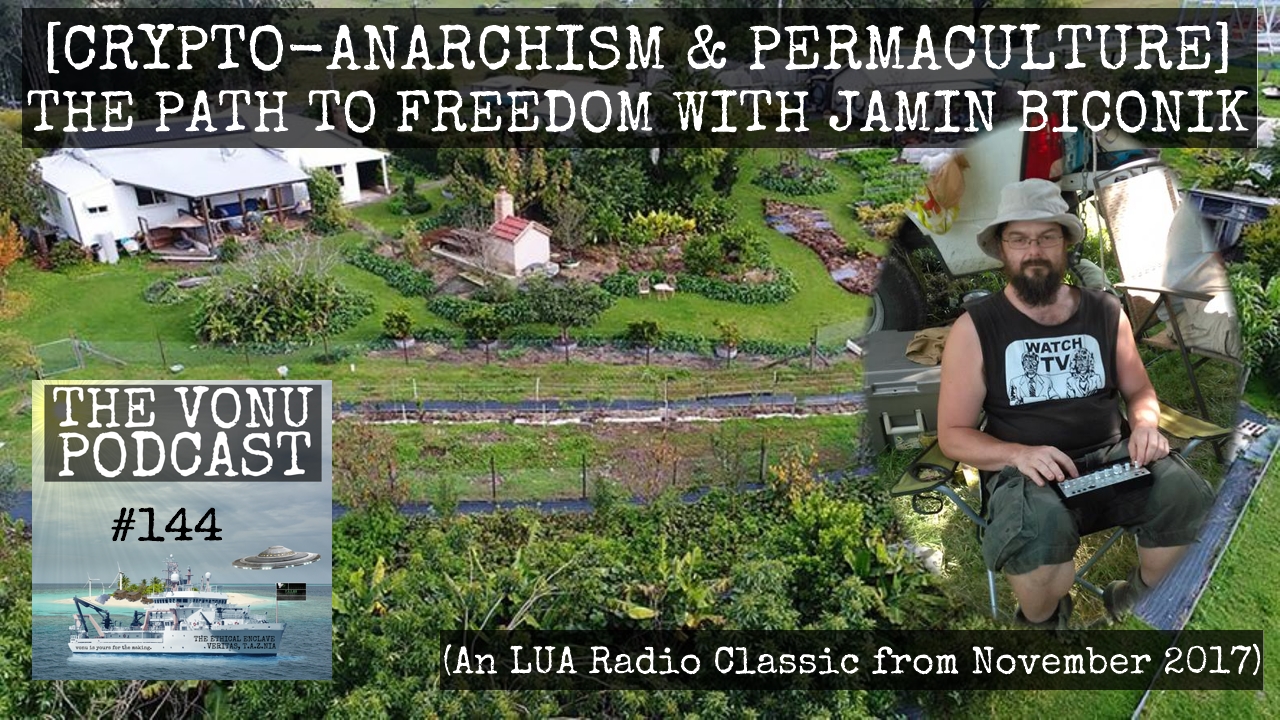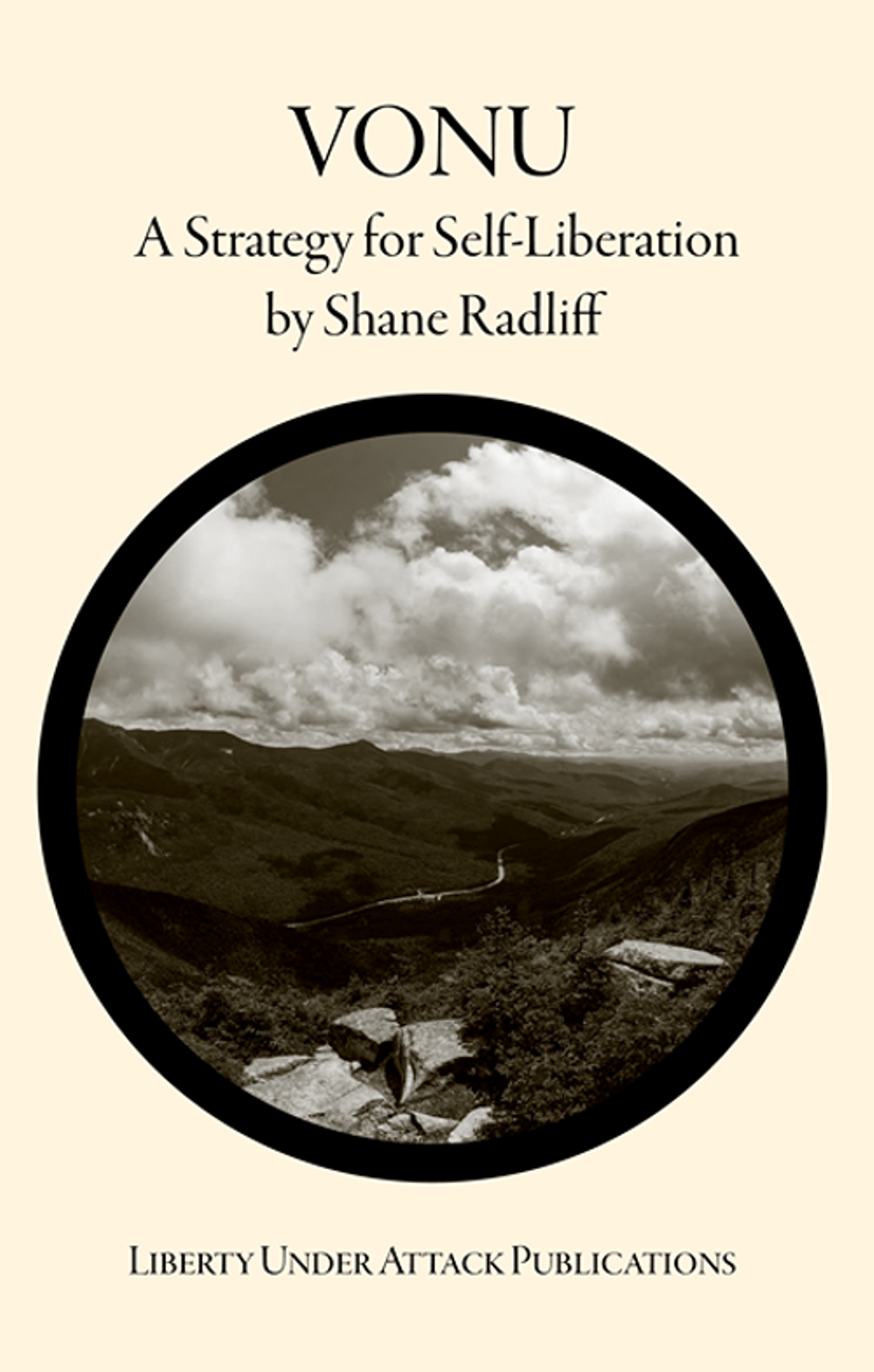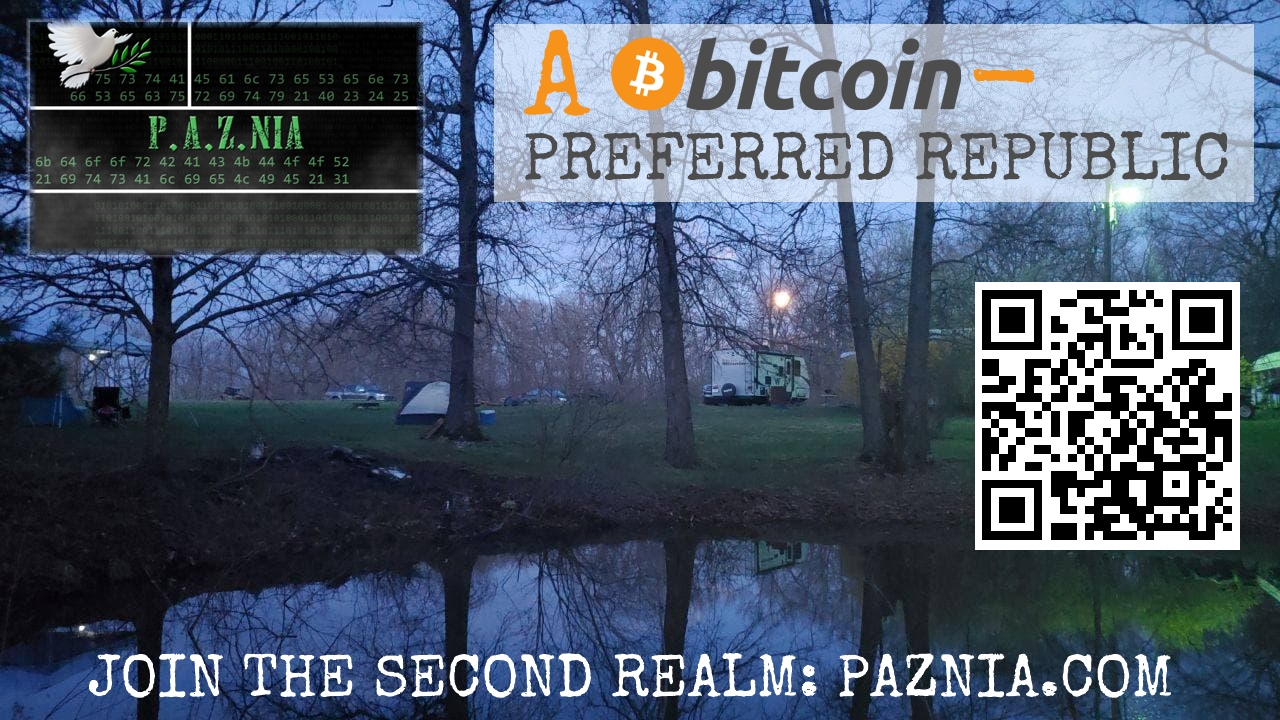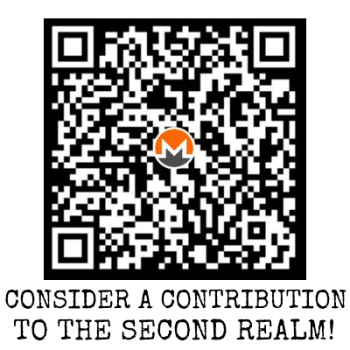Podcast: Play in new window | Download
Subscribe: Apple Podcasts | Android | Email | Google Podcasts | Stitcher | TuneIn | Spotify | RSS
On this episode of The Vonu Podcast, you’ll catch another Liberty Under Attack Radio classic from November 2017, wherein I’m joined once again by Jamin Biconik, a hardware hacker and permaculture farmer in Pennsylvania.

We begin by getting an update on his GhostPad project and get into some other things he’s working on in the crypto-anarchism realm, such as mesh networking, freedom boxes, weather stations, and irrigation control.
Those last two items provide a nice segue into the second portion of the discussion: permaculture farming. Jamin provides us with information how to begin, the advantages of this method of gardening, the problems with monoculture farming, and even tells us a bit about how this method of food production came about.
SHOW GUIDE:
- Jamin begins with an introduction to the new next generation GhostPads he got in, and some of the key distinctions, new Linux OS possibilities, etc.
- An early update and introduction to the FreedomBox system — self-hosted cloud server, no need for spying third parties to access your information remotely
- The FreedomBox provides infrastructure for mesh networking — a one-click install, the routing algorithms already exist
- We theorize about a future mobile van nomad mesh network around the USSA/world
- Jamin runs through his van setup to test a lot of these mobile hardware hacking applications
- Solutions other than mesh networking: war driving — a map/directory of wireless networks that can be accessed, works on GhostPads
- Using this same open source hardware/software to automate processes and increase efficiency around the homestead — irrigation control, weather monitoring stations, etc.
- Please pardon the little bit of shitcoinery
- Jamin defines/introduces permaculture farming
- His advice for getting started — build the soil using compost, manure, etc.!
- Thoughts on soil testing and how it’s more so a part of the conventional agricultural thinking
- Less focus on what nutrients are the soil, more on what nutrients are made available by microorganisms, worms, etc.
- Using various mushroom/fungi species to decompose cardboard and compost quicker
- Companion planting, cover crops, regulating the predator-prey ratio, and how to garden/farm without using toxic pesticides/herbicides
- An extensive discussion on the ills of modern agriculture, how we got here, grains as slave food, and the State’s involvement and interest in it all — you control the food, you control the people
~~~
[DOWNLOAD FOR FREE!]





